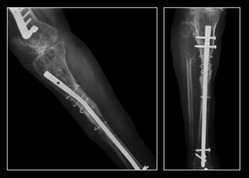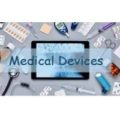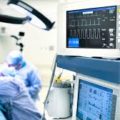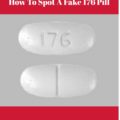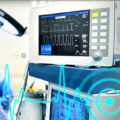The quality of surgical instruments is heavily relied upon by surgeons to perform procedures to the highest standard. Purchased from reputable suppliers, it is presumed that these instruments are of high quality and are usually put to use before any final user quality control is carried out. Problems arise, however, when these instruments do not live up to these expectations. Poor quality instruments fail and break and when used in an operation, the consequences to the patient can be disastrous. Recently, the Taiwanese FDA told hospitals to check equipment after police seized 13,000 allegedly counterfeit medical devices. Prosecutors took 13,000 items from Stephen Fan Trading amid allegations the company sold fake plates and screws under the name of a US medical device manufacturer. After hearing of the action the Taiwanese Food and Drug Administration (FDA) alerted hospitals of the threat.
In the United States, the Food and Drug Administration (FDA) published an alert in 2008 stating that nearly 1000 incidents of retained pieces of broken instruments (unretrieved device fragments, UDFs) occurred each year, leading to a range of problems including local tissue reactions, infections, disability, and even death. The alert also notes that with the increasing use of magnetic imaging modalities, the unrecognized presence of ferrous foreign bodies may cause tissue trauma or thermal injury.
The Association for Perioperative Practice guidelines for instrument checks currently states that “we must ensure that we do not cause any harm to our patients by negligently leaving foreign objects within patient cavities during clinically invasive procedures”; this suggests that some investigation to prove the absence of foreign material, is necessary despite the additional risks involved, although it does go on to state that the use of X-ray for poorly radio-visible items (such as needles) is at the discretion of the surgeon.
There are an increasing number of fake medical devices being introduced into the medical market which further complicates the issue. In 2010, WHO reported that 8% of all medical devices in circulation are fake, with actual numbers expected to be even higher. Although these products are not pharmaceutical, they have a significant impact on the health of the users. The dental industry has a large amount of fake dental instruments, ranging from x-ray machines, turbines, drills, composite, and even fake braces. The infection from a fake lead wiring can even lead to death.
Several surgical devices, such as clip cartridges, surgical mesh, sponge forceps, thermometers, plates, and screws have been found to be fake. In the US, $7 million worth of aortic pumps were recalled after discovering that they were fake. Although these devices may seem genuine, their parts may not function properly, which could lead to malfunction and death.
Thus, these counterfeit devices are a threat to the society and there is an urgent need to detect such devices. There is a significant difference in the presence of fake medical devices and access to them in the developed countries, such as the US, EU, Australia, Canada, and the UK compared to that in the developing countries.
How To Spot Fake surgical Instruments and Medical devices
Investigators face several challenges when it comes to the detection of fake medical devices and surgical instruments. Firstly, many anti-counterfeiting devices do not function properly in tropical climates. Also, it is difficult to determine if the poor performance of a device is due to poor quality or poor practice. Poor lab practices, inadequate training, or an inability to interpret results can lead to investigators falsely believing that the device is counterfeit.
Nevertheless, there are key indicators that can point you to the fact that a medical device and surgical instrument did not come from the right source.
How to check if it is a fake product
- Fake goods are sold at low and often very tempting prices. Be wary of deals that appear too good to be true – they usually are.
- Don’t buy something you know is far below the recommended retail price, no matter how tempting it may seem.
- Check the packaging. Remember, something that’s supposed to be expensive will not be delivered to you wrapped in plastic. Be wary of anything with low-quality packaging or no logo.
- Research the item that you’re intending to buy Does it have any distinguishing holographs or features?
- Buy from reputable retailers Don’t expect to buy high-end technology devices from a car boot sale or a market stall.
- Item description an area fraudsters often neglect. Always check the product description, especially in instances where they are uncertain or skeptical of a seller or website.
How to identify a Fake Medical Device company
- Very low price on the product you’re interested in. (If the price is more than 10% different from three or four other companies then that is a big red flag.)
- The supplier has many excuses why the price is so cheap.
- The supplier is impatient and pushing for a deposit without answering all your questions and concerns clearly.
- Only English websites with limited ways to contact people.
- Only one person to contact.
- The supplier won’t provide references of satisfied foreign clients.
- Trading Companies in general. (Of course, there are some good trading companies out there providing valuable service but most of the scam companies are trading companies that are easy to set up and close down if needed.)
- A trading company that hesitates to introduce you to or take you to the factory that produces the products.
- The supplier has excuses about not going to see the factory.
- The factory is in a different city and the supplier has not established a real connection to it.
- Answers all your questions with a “Yes, no problem”. (If it seems too easy then it is a red flag.)
- Sends you company documents that are not professionally translated. (They know you can’t read Chinese so what does it help to have some documents in Chinese.)
- A Hong Kong registered company. (Hong Kong and China mainland are not the same and I have no way to verify HK companies.)
- Trading companies from Shijiazhuang, Heibei. This particular province and city are well known in China for its scams and thieves so be extra careful in dealing with a trading company from this region.
- Requests TT transfer of deposits and gives you a different company name than the one you were dealing with.
- Any time there are different names of companies between the website, the documents sent, the bank accounts numbers, etc. are all red flags.
- Asking you to wire money to a personal bank account. SEE Neurosurgery Tools and Their Uses

